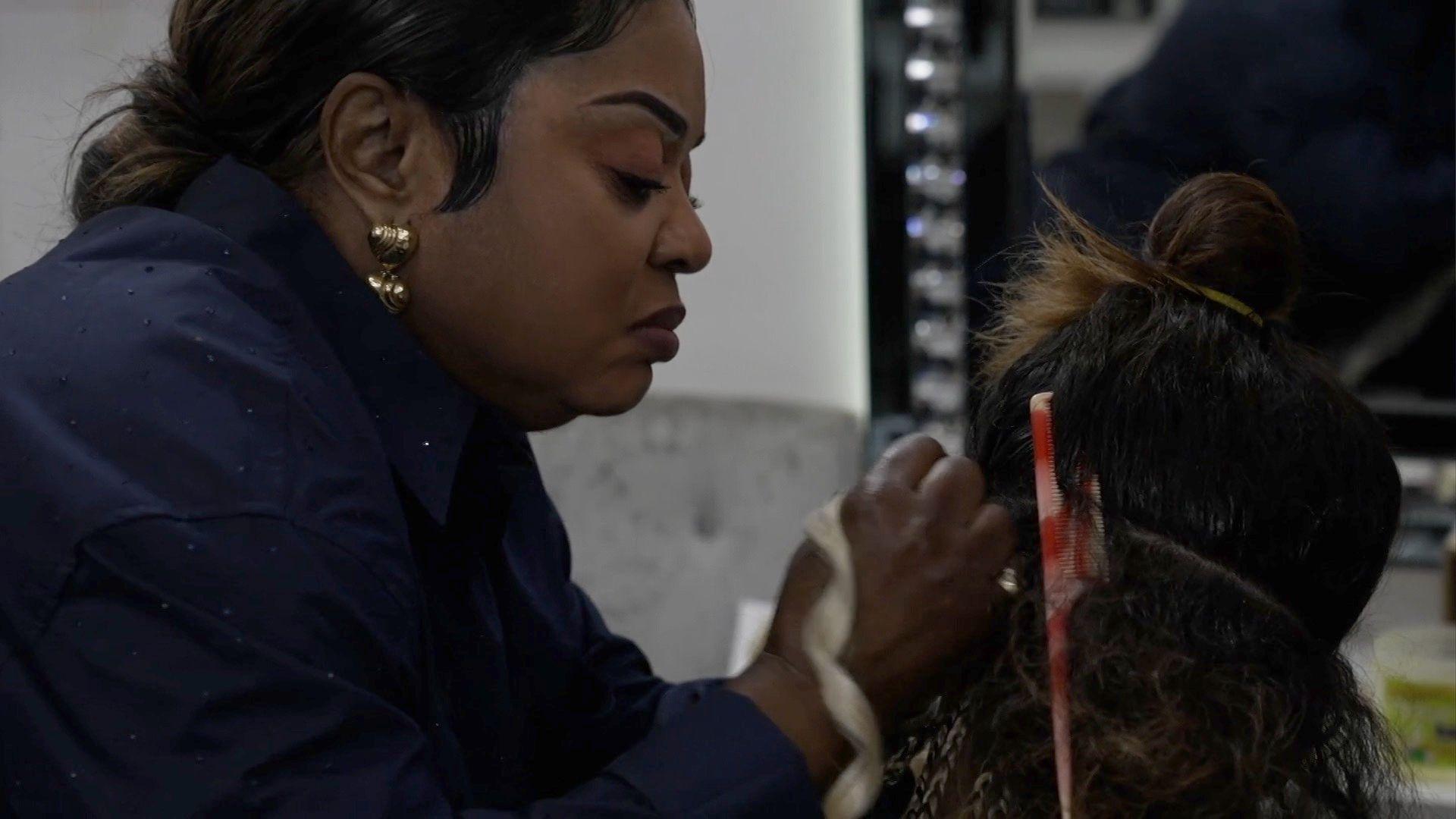Meet the artisans making Strictly and Wicked outfits
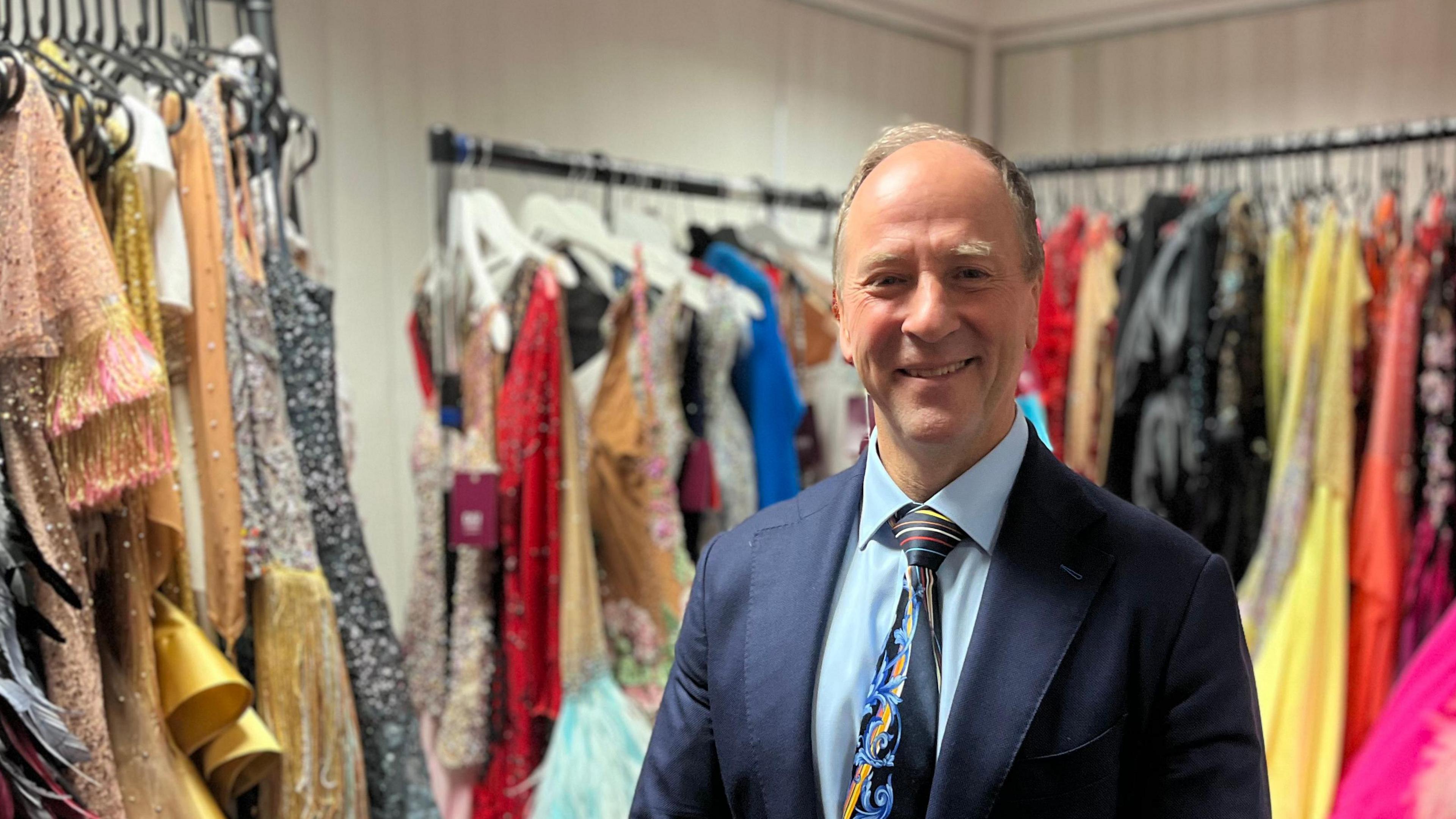
Gerald Schwanzer, sales director at DSI London, said his team "make movement come alive"
- Published
The glitz and glamour of the Strictly ballroom or the Emerald City in Wicked seem like a world away from a south London trading estate.
However, one independent fashion house in Croydon has become the home of West End and on-screen fashion, from the waistcoats and dresses in Hamilton to the costumes for Wicked's Shiz dancers.
DanceSport International (DSI London) was originally founded as a dance studio in 1982 by Geoffrey Hearn and ballroom dancer Peggy Spencer MBE.
It opened a dress making department in 2000, and now has 52 skilled artisans who handcraft every piece.
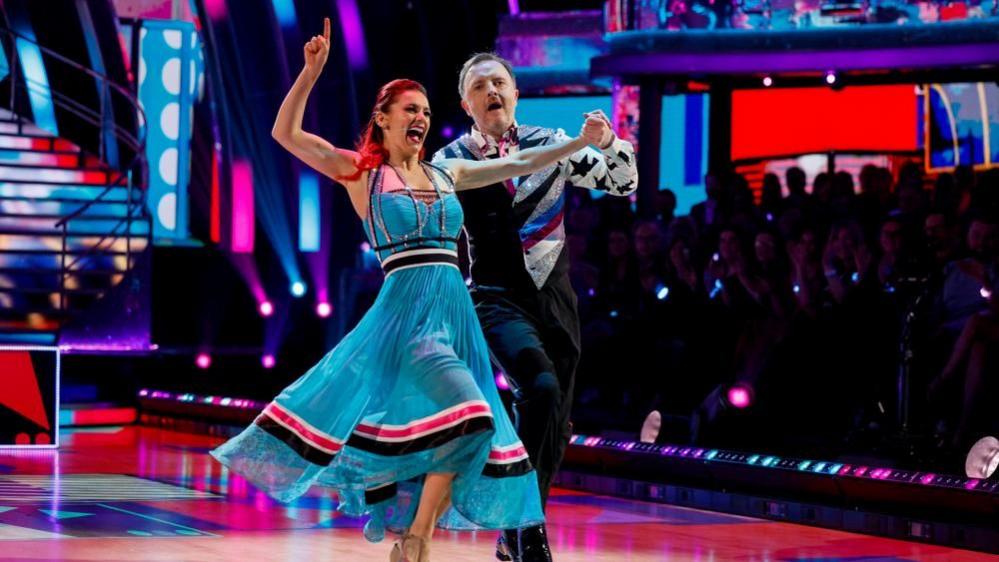
DSI London are the main supplier of costumes for Strictly Come Dancing
DSI London has been the main supplier of costumes for Strictly Come Dancing in its last three series.
Sales director Gerald Schwanzer explained how the company's dancing background has made it a favourite for performers and choreographers.
"We're a really authentic dance company. Strictly came to us because of our experience with dancing."
They have also been used for blockbuster films like Wicked, producing jackets for the Emerald City citizens and more, as well as West End theatre shows like Hamilton and Moulin Rouge.
Mr Schwanzer said many of the colours created and used by DSI London had become the industry standard.
"We have to have vivid, bright colours, and everything has to match. Getting and creating nice fabrics is a thrill in itself."
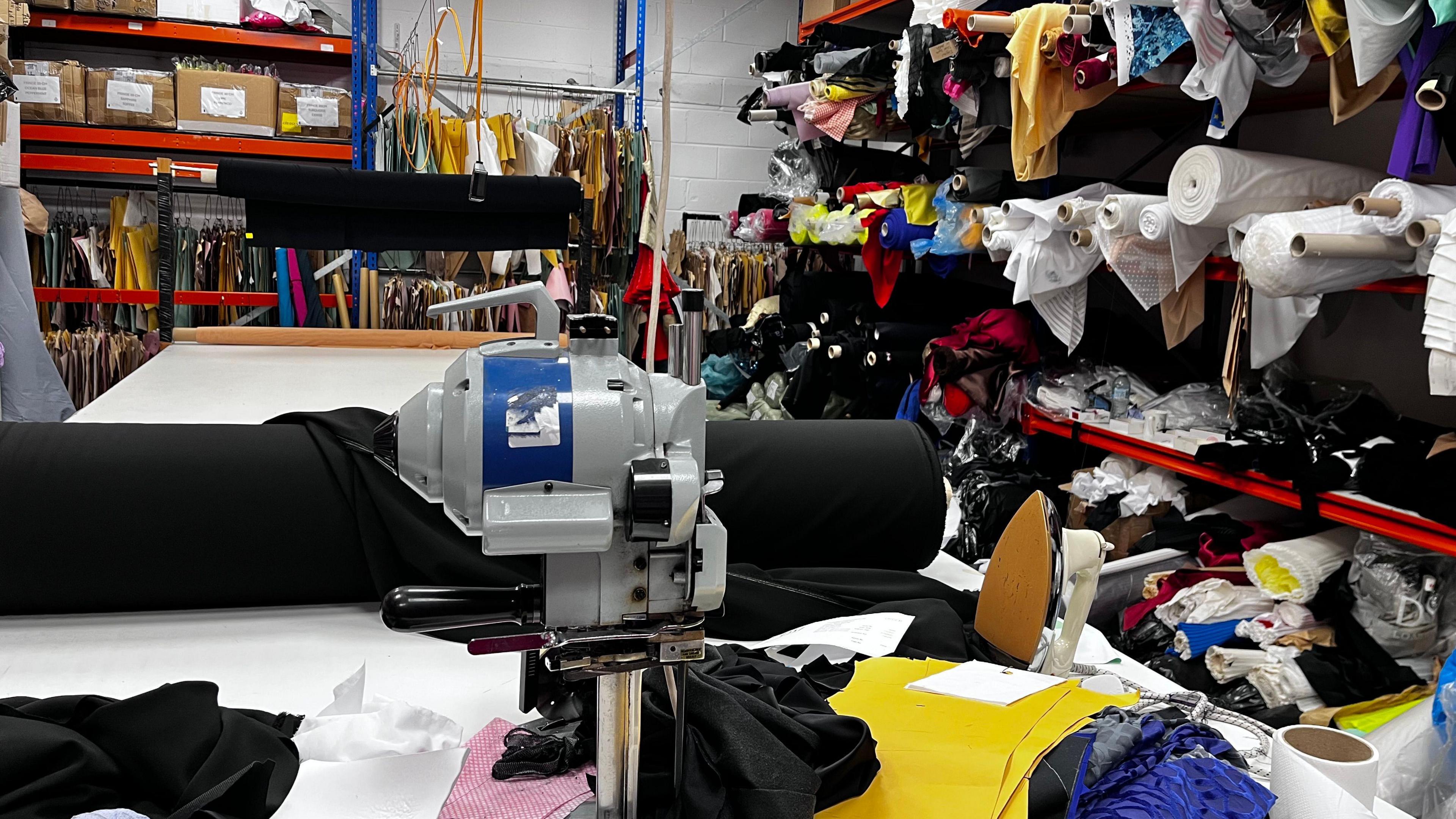
Gerald Schwanzer said supporting the London community is "our key selling point"
Mr Schwanzer said the demands of making costumes for performance are "completely different" compared to regular fashion.
"Performers want to move, and we want to accentuate the movement.
"We have the right expertise and machinery to make movement come alive and make it very exciting to watch. You need real experts to do something great."
He paid tribute to the hard-working attitude of his team in making the costumes, often working to extremely tight deadlines.
"We go to fittings, we feel the heat - it's in the soul. I believe making it in London and supporting the local community is really important, and that's our key selling point.
"I don't think you can do it anywhere else than London."
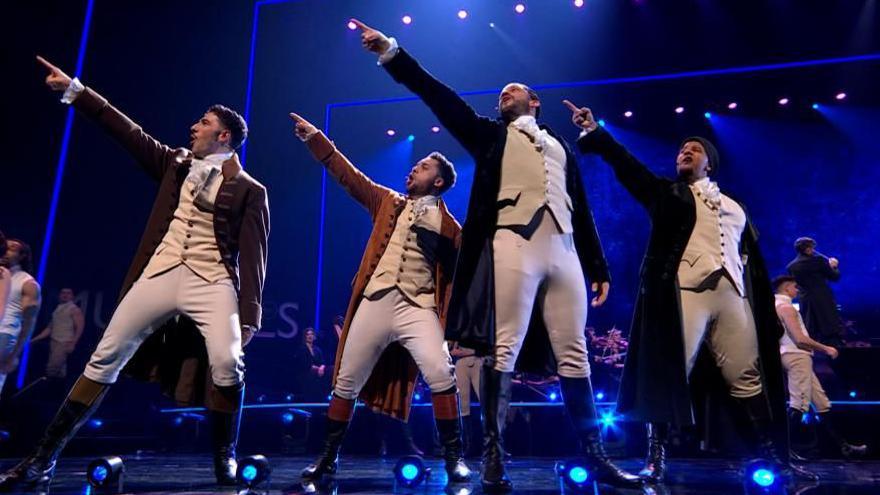
DSI London have made costumes for the West End musical Hamilton, including the ensemble waistcoats and dresses for the Winter's Ball
According to City Hall, one in six jobs in London are in the creative sector, with cultural tourism boosting the economy by an estimated £7.3bn annually.
Anneza Pitsialis, the head of small business programmes at business growth agency London and Partners said the capital's creative industries had become a valuable asset for the city and that products with a "Made in London" label had added appeal.
"London has such a vibrant community of around 14,000 local manufacturers, from fashion for our West End shows and theatres, to food feeding our cafés, restaurants and supermarkets," she said.
"It's important we support manufacturers to stay competitive and continue to grow."
Listen to the best of BBC Radio London on Sounds and follow BBC London on Facebook, external, X, external and Instagram, external. Send your story ideas to hello.bbclondon@bbc.co.uk, external
- Published1 April
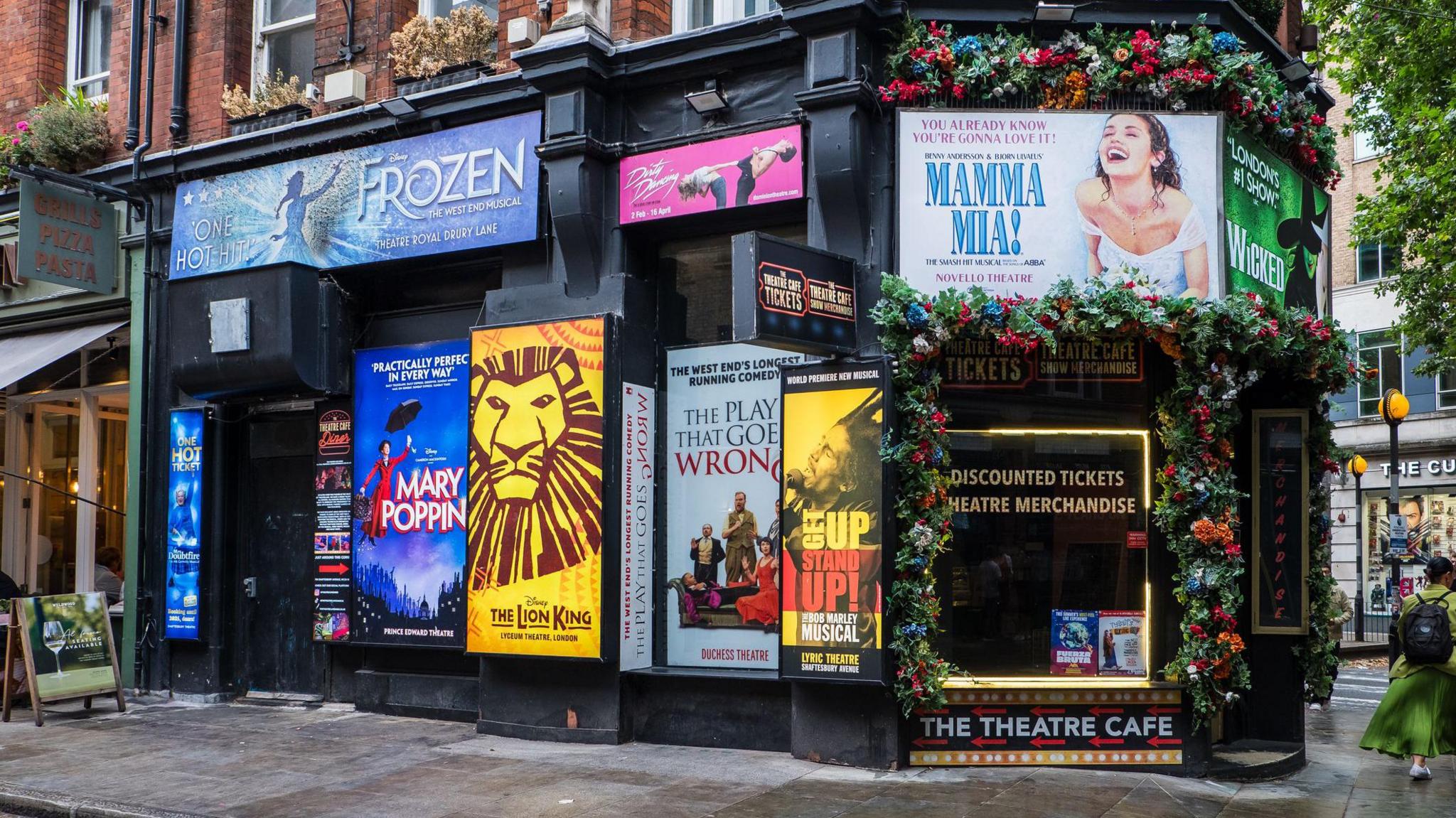
- Published4 January
